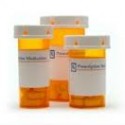Ending Moderate Drinking Tied To Depression
Scientific evidence has long suggested that moderate drinking offers some protection against heart disease, certain types of stroke and some forms of cancer. But new research shows that stopping drinking — including at moderate levels — may lead to health problems including depression and a reduced capacity of the brain to produce new neurons, a process called neurogenesis.
The findings from the Bowles Center for Alcohol Studies at the University of North Carolina at Chapel Hill appear online in the journal Neuropsychopharmacology.
“Our research in an animal model establishes a causal link between abstinence from alcohol drinking and depression,” said study senior author Clyde W. Hodge, Ph.D., professor of psychiatry and pharmacology in the UNC School of Medicine. “In mice that voluntarily drank alcohol for 28 days, depression-like behavior was evident 14 days after termination of alcohol drinking. This suggests that people who stop drinking may experience negative mood states days or weeks after the alcohol has cleared their systems.”
The mice were tested for depression-like behavior using a widely recognized method called the Porsolt Swim Test. The mice are placed inside a beaker filled with water and allowed to swim for six minutes. Mice are good swimmers and have no problem completing this task. The amount of time they spend immobile (floating and not swimming) is measured as an index of despair or depression-like behavior. The more time a mouse spends immobile, the more “depressed” it is thought to be.
“This research provides the first evidence that long-term abstinence from moderate alcohol drinking — rather than drinking per se — leads to a negative mood state, depression,” Hodge said.
The study also found that the emergence of depression was associated with a profound reduction in the number of neural stem cells (cells that will become neurons) and in the number of new neurons in a brain region known as the hippocampus. This brain region is critical for normal learning and memory, and recent studies show that the development of neurons in the hippocampus may regulate mood, Hodge said.
According to the researcher, the negative mood state in mice may represent depression in humans and appears to be linked to a diminished capacity of the brain to form new neurons. “Thus, people who drink moderate alcohol socially, or for potential health benefits, may experience negative mood or diminished cognitive abilities due to a loss of the brain’s ability to form new neurons,” he said.
But the study also found that treatment with an antidepressant drug during 14 days of abstinence prevented the development of depression and restored the capability of the brain to produce new cells.
“Treatment with antidepressant drugs may help people who suffer from both alcoholism and depression by restoring the brain’s ability to form new neurons,” Hodge said. “Moreover, this research provides an animal model of alcohol-related depression with which we can begin to fully understand the neurobiology underlying co-occurring alcoholism and depression, and thereby develop successful treatment options. At this point it appears that blunted neurogenesis may underlie the effects of abstinence from alcohol drinking on mood, but understanding the mechanisms by which this occurs is a key challenge for future research.”
Several co-authors, all from UNC, also contributed to the study: Jennie R. Stevenson, neurobiology graduate student; Jason P. Schroeder, Ph.D., and Kimberly Nixon, Ph.D., research associates with the Bowles Center; Joyce Besheer, Ph.D., assistant professor of psychiatry; and Fulton T Crews, Ph.D., director of the Bowles Center and professor of psychiatry and pharmacology.
The research was supported by grants from the National Institute on Alcohol Abuse and Alcoholism (a component of the National Institutes of Health) and by the Bowles Center for Alcohol Studies.
___________
source: Science Daily


